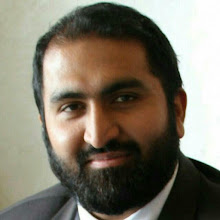One of great al-a’immah al-arba‘ah, al-Imām Abū ʻAbd Allāh Mālik ibn Anas al-Aṣbaḥī (d. 179 AH), commonly known as al-Imām Mālik, who founded the Mālikī school of Islamic law (madhhab), was of the opinion that Jesus (‘alayhi ṣ-ṣalātu wa-s-salām) had died a natural death. Listed below now are four conclusive and significant references on that note:
1. al-Imām Abū al-Walīd Muḥammad ibn Aḥmad ibn Rushd al-Jadd al-Qurtubī (d. 520 AH) states in al-Bayān at-taḥṣīl wa-t-tawjīh wa-t-taʻlīl fī masā’il al-mustakhrajah, his commentary on al-‘Utbī's al-Mustakhrajah[1]:
”ويحتمل أن يكون معنى قوله: {بل رفعه الله إليه} أي رفع روحه إليه بعد أن مات ويحييه في آخر الزمان فينزله إلى الأرض على ما جاءت به الآثار، فيكون قول مالك على هذا ’ومات وهو ابن ثلاث وثلاثين سنة‘ على الحقيقة لا على المجاز.“
“And it is likely that the meaning of ‘On the contrary, Allāh exalted him to Himself’[2] is the exaltation of his soul to Him after he had died and He will revive him in the latter days. Thus, He will cause him to descend to the earth according to what the traditions (āthār) came along with. The statement of Mālik on this ‘and he died when he was 33 years old’ is literal and not a metaphor.”[3]
2. al-Qāḍī Abū Muḥammad ʻAbd al-Ḥaqq ibn Ghālib ibn ʻAṭīyah al-Andalusī al-Muḥāribī (d. 542) writes in his Qurʼān exegesis (tafsīr) al-Muḥarrir al-wajīz fī tafsīr al-Kitāb al-ʻazīz:
”وقال مالك في جامع العتبية: مات عيسى وهو ابن ثلاث وثلاثين سنة.“
“And Mālik said in Jami‘ al-‘utbiyyah[1]: Jesus died when he was 33 years old.”[4]
3. al-Imām Abī ʻAbd Allāh Muḥammad ibn Khalīfah al-Washtānī al-Ubbī al-Mālikī (d. 827 AH), writes in his Kitāb Ikmāl ikmāl al-mu‘allim, which is a commentary (sharḥ) of the Ṣaḥīḥ of Muslim ibn al-Ḥajjāj al-Qushayrī an-Nīsābūrī (d. 261 AH):
”وفي العتبية قال مالك: مات عيسى ابن ثلاث وثلاثين سنة. قال ابن رشد: يعني موته: خروجه من عالم الأرض إلى عالم السماء. قال: ويحتمل أنه مات حقيقة، ويحيا في آخر الزمان، إذ لا بدّ من نزوله لتواتر الأحاديث بذلك.“
“And it is in al-‘Utbiyyah[1] that Mālik said: Jesus died when he was 33 years old. Ibn Rushd [al-Jadd] said: By this he meant his death: His emergence from the earthly world to the heavenly world. He said: And it is likely that he died a proper death and that he will be revived in the latter days, for there is no doubt about his descension (nuzūl), because of the successiveness (tawātur) of the traditions (ahādīth) on it.”[5]
4. ash-Shaykh Muḥammad Ṭāhir ibn ‘Alī aṣ-Ṣiddīqī al-Fattanī al-Hindī al-Kujrātī (d. 986 AH) writes in his work Majmaʻ biḥār al-anwār fī gharāʼib al-tanzīl wa-laṭāʼif al-akhbār, which is a dictionary of the terms (ghāraʼib) of the Qurʼān and the Aḥādīth:
”وقال مالك: مات وهو ابن ثلاث وثلاثين سنة. ولعله أراد رفعه إلى السماء، أو حقيقته ويحيى آخر الزمان لتواتر خبر النزول.“
“And Mālik said: He died when he was 33 years old. And He may have intended to raise him to the sky or [He may have caused] his proper [death] and he will be revived in the latter days, because of the successiveness (tawātur) of the traditions (khabar) on the descension (nuzūl).”[6]
Wa-llāhu A‘lamu bi-ṣ-ṣawāb wa ilayhi l-marji‘u wa-l-maʼāb![7]
[1] A book of Mālikī Fiqh, known as al-‘Utbiyyah or al-Mustakhrajah, by Abū ʻAbd Allāh Muḥammad ibn Aḥmad al-Umawī as-Sufyānī al-‘Utbī al-Qurṭubī (d. 255 AH), only available in commentaries today, e.g. by al-Imām Abū al-Walīd Muḥammad ibn Aḥmad ibn Rushd al-Jadd al-Qurṭubī in his al-Bayān at-taḥṣīl wa-t-tawjīh wa-t-taʻlīl fī masā’il al-mustakhrajah
[3] al-Qurtubī, I. R. (1988). al-Bayān at-taḥṣīl wa-t-tawjīh wa-t-taʻlīl fī masā’il al-mustakhrajah. Bayrūt, Lubnān: Dār al-Gharb al-Islamī, p. 449.
[4] al-Andalusī, I. ʻA. (2002). Tafsīr Ibn ʻAṭīyah, al-Muḥarrir al-wajīz fī tafsīr al-Kitāb al-ʻazīz. Bayrūt: Dār Ibn Ḥazm, p. 308.
[6] Fattanī, M. T. (1897). Majmaʻ biḥār al-anwār fī gharāʼib at-tanzīl wa-laṭāʼif al-akhbār. Lakʹhnaw: Nawal Kishawr, p. 286.
[7] And Allāh knows best what is right and to Him is the final return and the last resort!


0 comments:
Post a Comment